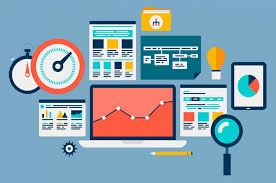Home » Course Layouts » Free Course Layout Udemy
The concepts and use of project management tools, techniques and methodologies are becoming all-pervasive. This course addresses project management in the context of IT projects, including software projects. Using the framework of the project life cycle, the course covers various aspects pertaining to (i) project initiation, (ii) project planning and scheduling, (iii) project monitoring and control, and (iv) project termination. For planning and scheduling of projects, the use of project network and estimation of time and cost are covered in detail. Scheduling of projects with resource limitations is covered next.
0
36
English
English [CC]
- Learn basic syntax that can apply to any language.
- Learn what is a programming language and the basic concepts for beginners.
- Understand what is Javascript in it's truest form.
- Know the basic syntax of Javascript.
- Know some hidden quirks in Javascript.
Description
What is software project management?
Software project management is an art and discipline of planning and supervising software projects. It is a sub-discipline of software project management in which software projects planned, implemented, monitored and controlled. It is a procedure of managing, allocating and timing resources to develop computer software that fulfils requirements. In software Project Management, the client and the developers need to know the length, period and cost of the project.Prerequisite of software project management?
There are three needs for software project management. These are:- Time
- Cost
- Quality
Role of a Project Manager:
1. Leader A project manager must lead his team and should provide them directly to make them understand what is expected from all of them. 2. Medium: The Project manager is a medium between his clients and his team. He must coordinate and transfer all the appropriate information from the clients to his team and report to the senior management. 3. Mentor: He should be there to guide his team at each step and make sure that the team has an attachment. He provides a recommendation to his team and points them in the right direction.Responsibilities of a Project Manager:
- Managing risks and issues.
- Create the project team and assigns tasks to several team members.
- Activity planning and sequencing.
- Monitoring and reporting progress.
- Modifies the project plan to deal with the situation.
Course content
-
- What is Project and Project Management 00:20:00
- Project Activities 01:00:00
-
- Software Engineering Tutorial 03:00:00
- Software Processes 02:00:00
- Software Development Life Cycle (SDLC) 02:00:00
- SDLC Models 01:40:00
- Requirement Engineering 01:40:00
- Waterfall Model 00:45:00
- RAD (Rapid Application Development) Model 00:45:00
- Spiral Model 00:00:40
- V-Model 00:40:00
- Incremental Model 00:45:00
- Agile Model 00:45:00
- Iterative Model 00:45:00
- Big Bang Model 00:25:00
- Prototype Model 00:00:00
- Software Project Planning 00:20:00
- Software Cost Estimation 00:45:00
- COCOMO Model 01:20:00
- Putnam Resource Allocation Model 00:40:00
- Software Requirement Specifications 00:55:00
- Requirements Analysis 00:35:00
- Data Flow Diagrams 00:03:00
- Data Dictionaries 00:45:00
- Entity-Relationship Diagrams 02:00:00
- What is Software Quality? 00:40:00
- ISO 9000 Certification 00:45:00
- Software Engineering Institute Capability Maturity Model (SEICMM) 00:45:00
- People Capability Maturity Model (PCMM) 00:45:00
- Six Sigma 01:00:00
- What is coding? 00:45:00
- Programming Style 00:45:00
- Structured Programming 00:45:00
- Software Maintenance 00:45:00
- Causes of Software Maintenance Problems 00:45:00
- Software Maintenance Cost Factors 01:30:00
N.A
- 5 stars0
- 4 stars0
- 3 stars0
- 2 stars0
- 1 stars0
No Reviews found for this course.
Instructor
Open University UK
4.8
4.8
14
43384
1068
Explore Free Courses
Access valuable knowledge without any cost.
{"title":"","show_title":"0","post_type":"course","taxonomy":"course-cat","term":"engineering-skills,health-and-safety","post_ids":"","course_style":"free","featured_style":"course6","masonry":"","grid_columns":"clear4 col-md-3","column_width":"268","gutter":"30","grid_number":"4","infinite":"","pagination":"","grid_excerpt_length":"20","grid_link":"1","grid_search":"0","course_type":"","css_class":"","container_css":"","custom_css":""}










